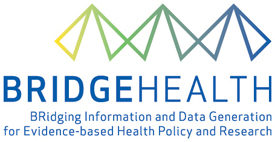European Core Health Indicators Monitoring
Update of the ECHI Shortlist indicators and improvement of the knowledge to support the effective development and use of health indicators for health policy purposes.
Evidence-based public health policy needs solid data and health information derived from valid and comparable sources. The European Community Health Indicators (ECHI) initiative responded to the European Commission’s call to establish a set of public health indicators for the EU. In previous EU-funded projects (ECHI-1, ECHI-2, ECHIM-1, ECHIM-JA), a core set of public health indicators was developed, and its implementation was initiated.
This work package of the BRIDGE Health project will update, evaluate and improve the existing ECHI-indicators, aiming to generate a more concise and policy-focused health indicator set. Building upon expertise from previous projects, it will strengthen the scientific base that supports the effective development as well as the use of health indicators for health policy evaluation and prioritization.
The availability and comparability of health data varies between EU Member States. As a long-term strategic objective, the work package aims to reduce or close this health information gap by disseminating relevant knowledge, sharing expertise, building capacity and supporting a dedicated interactive and sustainable network. Easier access will be provided to existing indicator methodologies.
The work package will pursue the following key tasks and objectives:
- Revitalize and strengthen the network of national capacities for assessing, reviewing, developing and using ECHI-indicators;
- Map the data availability for the ECHI Shortlist in EU-Member States;
- Perform technical and content-related evaluations of the current ECHI-indicator approach including, where necessary, revisions and further development of the current ECHI Shortlist;
- Design and fill a European health indicator repository;
- Contribute to capacity building.
The work package will closely cooperate with other work packages and with international organizations which already work in the areas involved.
The main contributers to this research field are:
 |  |

